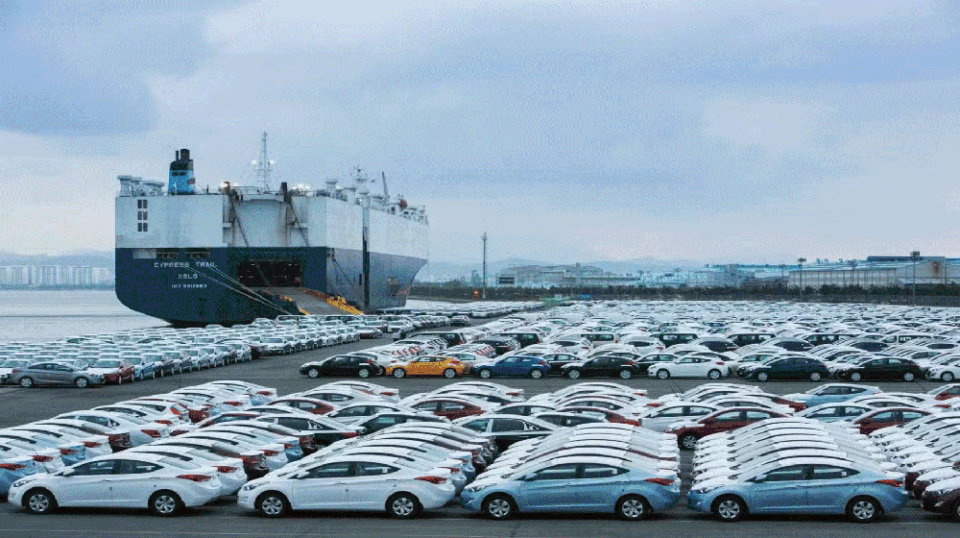Pakistan Bans Low-Quality Used Car Imports, Imposes 40% Tariff to Protect Local Industry
The government of Pakistan has announced a ban on accidental and low-quality used cars while imposing a 40% tariff on commercial imports of used vehicles starting next month. Officials say this move is aimed at safeguarding the local auto industry.
Consumers, however, are unlikely to see any immediate drop in car prices, as local assemblers already face high taxation ranging from 30% to 61% of a vehicle’s retail price.
The announcement came during a joint meeting of the Senate Standing Committees on Finance and Industry. Joint Secretary for Trade Policy, Mohammad Ashfaq, informed lawmakers that, under commitments to the International Monetary Fund (IMF), the government will enforce a 40% tariff on new car imports.
Ashfaq added that authorities are still deciding whether to continue existing import schemes, such as transfer of residence, baggage, and gift imports, once commercial imports are formally allowed. Currently, commercial imports are banned, and about one-fourth of market demand is met through these schemes. Many consumers prefer these vehicles over locally assembled options.
Under Pakistan’s $7 billion IMF bailout package, commercial imports of used vehicles up to five years old will be allowed starting September. By next July, age and quality restrictions are set to be lifted. Over the next four years, the 40% tariff will gradually decrease to zero, eventually allowing imports of six- to eight-year-old vehicles. Environmental standards will also be enforced to reduce risks.
As part of the IMF agreement, Pakistan will reduce its average tariff from 20.2% to 9.7% over five years. In the first year (FY26), the average tariff will fall to 15.7%, achieved by lowering customs duty to 11.2%, additional customs duty to 1.8%, and regulatory duty to 2.7%. Additional duties and exemptions will be gradually eliminated, and the tariff system will be simplified to just four slabs with a maximum rate of 15%.
The Pakistan Automotive Manufacturers Association (PAMA) and the Pakistan Association of Automotive Parts and Accessories Manufacturers (PAAPAM) have raised concerns about the IMF-driven changes. They warn that trade liberalization could hurt the local industry.
Currently, auto products are protected under the Auto Policy with customs duties up to 35%. These protections will begin phasing out from July 1, 2026. Analysts say the policy highlights Islamabad’s attempt to balance IMF conditions with pressure from the local auto lobby, leaving consumers in a waiting game.
For now, the ban on low-quality and accidental car imports, combined with the 40% tariff, means vehicle prices in Pakistan are unlikely to drop anytime soon.

